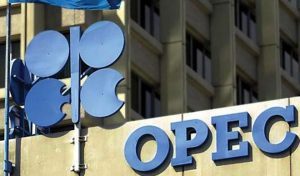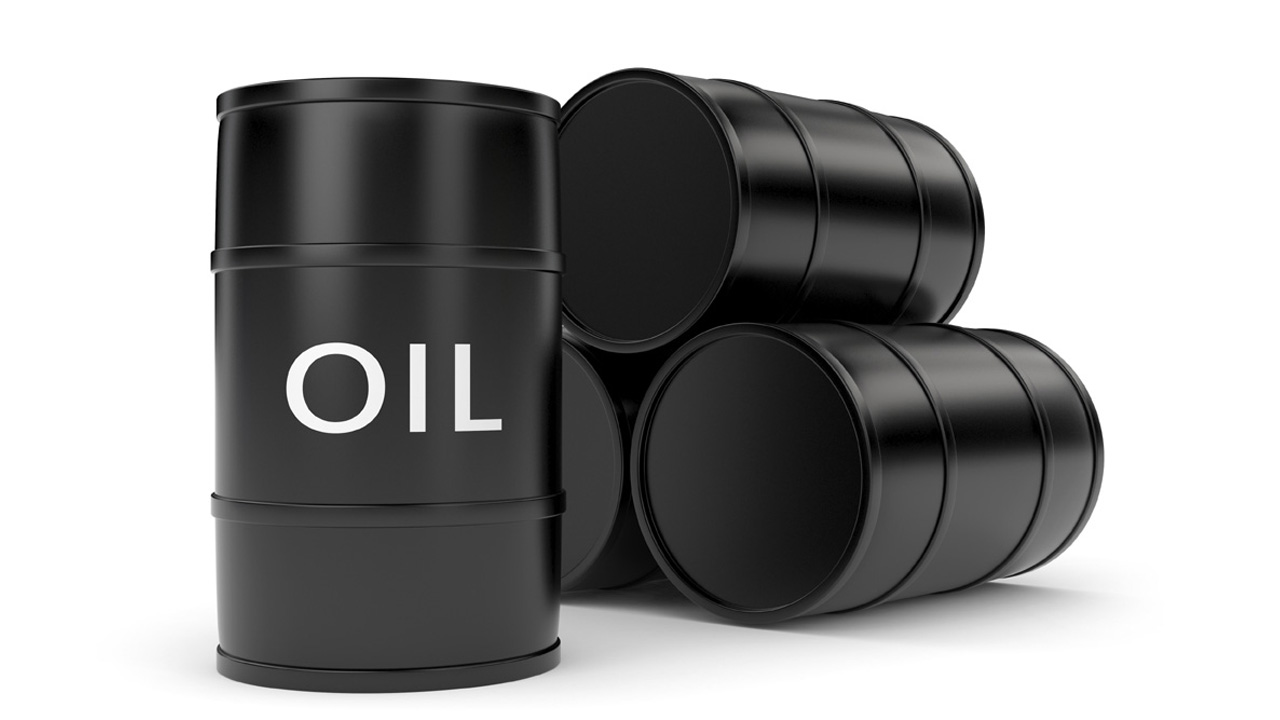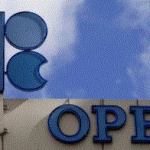 Despite the threat posed by electric vehicles (EV) and targets set by countries to halt petrol-fueled cars, oil will still remain a fuel of choice at least for the foreseeable future, the Organisation of Petroleum Exporting Countries (OPEC) said yesterday.
Despite the threat posed by electric vehicles (EV) and targets set by countries to halt petrol-fueled cars, oil will still remain a fuel of choice at least for the foreseeable future, the Organisation of Petroleum Exporting Countries (OPEC) said yesterday.
OPEC which appears unperturbed by the revolution in the renewable energy space, said oil is expected to remain the fuel with the largest share in the energy mix till the 2040 forecast period.
The organisation in its 2017 World Oil Outlook unveiled yesterday in Vienna, forecasted that world oil demand would rise to 111.1 million barrels per day (bpd) in 2040 and could be curbed to 108.60 million bpd if electric vehicles are adopted wider than assumed.
Highlight of the forecast showed that total primary energy demand is set to increase by 35 per cent in the period to 2040 as developing countries will continue to lead demand growth.
According to the report, long-term demand growth will come mainly from road transportation (5.4 mb/d), petrochemicals (3.9 mb/d) and aviation (2.9 mb/d).
“Oil demand in the road transportation sector is driven by the increasing car fleet in developing countries and declining oil use per vehicle in the OECD region,” it said.
OPEC said the required global oil sector investment is estimated at $10.5 trillion in the period up to 2040.
 Despite the threat posed by electric vehicles (EV) and targets set by countries to halt petrol-fueled cars, oil will still remain a fuel of choice at least for the foreseeable future, the Organisation of Petroleum Exporting Countries (OPEC) said yesterday.
Despite the threat posed by electric vehicles (EV) and targets set by countries to halt petrol-fueled cars, oil will still remain a fuel of choice at least for the foreseeable future, the Organisation of Petroleum Exporting Countries (OPEC) said yesterday.
OPEC which appears unperturbed by the revolution in the renewable energy space, said oil is expected to remain the fuel with the largest share in the energy mix till the 2040 forecast period.
The organisation in its 2017 World Oil Outlook unveiled yesterday in Vienna, forecasted that world oil demand would rise to 111.1 million barrels per day (bpd) in 2040 and could be curbed to 108.60 million bpd if electric vehicles are adopted wider than assumed.
Highlight of the forecast showed that total primary energy demand is set to increase by 35 per cent in the period to 2040 as developing countries will continue to lead demand growth.
According to the report, long-term demand growth will come mainly from road transportation (5.4 mb/d), petrochemicals (3.9 mb/d) and aviation (2.9 mb/d).
“Oil demand in the road transportation sector is driven by the increasing car fleet in developing countries and declining oil use per vehicle in the OECD region,” it said.
OPEC said the required global oil sector investment is estimated at $10.5 trillion in the period up to 2040.
 Despite the threat posed by electric vehicles (EV) and targets set by countries to halt petrol-fueled cars, oil will still remain a fuel of choice at least for the foreseeable future, the Organisation of Petroleum Exporting Countries (OPEC) said yesterday.
Despite the threat posed by electric vehicles (EV) and targets set by countries to halt petrol-fueled cars, oil will still remain a fuel of choice at least for the foreseeable future, the Organisation of Petroleum Exporting Countries (OPEC) said yesterday.
OPEC which appears unperturbed by the revolution in the renewable energy space, said oil is expected to remain the fuel with the largest share in the energy mix till the 2040 forecast period.
The organisation in its 2017 World Oil Outlook unveiled yesterday in Vienna, forecasted that world oil demand would rise to 111.1 million barrels per day (bpd) in 2040 and could be curbed to 108.60 million bpd if electric vehicles are adopted wider than assumed.
Highlight of the forecast showed that total primary energy demand is set to increase by 35 per cent in the period to 2040 as developing countries will continue to lead demand growth.
According to the report, long-term demand growth will come mainly from road transportation (5.4 mb/d), petrochemicals (3.9 mb/d) and aviation (2.9 mb/d).
“Oil demand in the road transportation sector is driven by the increasing car fleet in developing countries and declining oil use per vehicle in the OECD region,” it said.
OPEC said the required global oil sector investment is estimated at $10.5 trillion in the period up to 2040.
 Despite the threat posed by electric vehicles (EV) and targets set by countries to halt petrol-fueled cars, oil will still remain a fuel of choice at least for the foreseeable future, the Organisation of Petroleum Exporting Countries (OPEC) said yesterday.
Despite the threat posed by electric vehicles (EV) and targets set by countries to halt petrol-fueled cars, oil will still remain a fuel of choice at least for the foreseeable future, the Organisation of Petroleum Exporting Countries (OPEC) said yesterday.
OPEC which appears unperturbed by the revolution in the renewable energy space, said oil is expected to remain the fuel with the largest share in the energy mix till the 2040 forecast period.
The organisation in its 2017 World Oil Outlook unveiled yesterday in Vienna, forecasted that world oil demand would rise to 111.1 million barrels per day (bpd) in 2040 and could be curbed to 108.60 million bpd if electric vehicles are adopted wider than assumed.
Highlight of the forecast showed that total primary energy demand is set to increase by 35 per cent in the period to 2040 as developing countries will continue to lead demand growth.
According to the report, long-term demand growth will come mainly from road transportation (5.4 mb/d), petrochemicals (3.9 mb/d) and aviation (2.9 mb/d).
“Oil demand in the road transportation sector is driven by the increasing car fleet in developing countries and declining oil use per vehicle in the OECD region,” it said.
OPEC said the required global oil sector investment is estimated at $10.5 trillion in the period up to 2040.
 Despite the threat posed by electric vehicles (EV) and targets set by countries to halt petrol-fueled cars, oil will still remain a fuel of choice at least for the foreseeable future, the Organisation of Petroleum Exporting Countries (OPEC) said yesterday.
Despite the threat posed by electric vehicles (EV) and targets set by countries to halt petrol-fueled cars, oil will still remain a fuel of choice at least for the foreseeable future, the Organisation of Petroleum Exporting Countries (OPEC) said yesterday.
OPEC which appears unperturbed by the revolution in the renewable energy space, said oil is expected to remain the fuel with the largest share in the energy mix till the 2040 forecast period.
The organisation in its 2017 World Oil Outlook unveiled yesterday in Vienna, forecasted that world oil demand would rise to 111.1 million barrels per day (bpd) in 2040 and could be curbed to 108.60 million bpd if electric vehicles are adopted wider than assumed.
Highlight of the forecast showed that total primary energy demand is set to increase by 35 per cent in the period to 2040 as developing countries will continue to lead demand growth.
According to the report, long-term demand growth will come mainly from road transportation (5.4 mb/d), petrochemicals (3.9 mb/d) and aviation (2.9 mb/d).
“Oil demand in the road transportation sector is driven by the increasing car fleet in developing countries and declining oil use per vehicle in the OECD region,” it said.
OPEC said the required global oil sector investment is estimated at $10.5 trillion in the period up to 2040.
 Despite the threat posed by electric vehicles (EV) and targets set by countries to halt petrol-fueled cars, oil will still remain a fuel of choice at least for the foreseeable future, the Organisation of Petroleum Exporting Countries (OPEC) said yesterday.
Despite the threat posed by electric vehicles (EV) and targets set by countries to halt petrol-fueled cars, oil will still remain a fuel of choice at least for the foreseeable future, the Organisation of Petroleum Exporting Countries (OPEC) said yesterday.
OPEC which appears unperturbed by the revolution in the renewable energy space, said oil is expected to remain the fuel with the largest share in the energy mix till the 2040 forecast period.
The organisation in its 2017 World Oil Outlook unveiled yesterday in Vienna, forecasted that world oil demand would rise to 111.1 million barrels per day (bpd) in 2040 and could be curbed to 108.60 million bpd if electric vehicles are adopted wider than assumed.
Highlight of the forecast showed that total primary energy demand is set to increase by 35 per cent in the period to 2040 as developing countries will continue to lead demand growth.
According to the report, long-term demand growth will come mainly from road transportation (5.4 mb/d), petrochemicals (3.9 mb/d) and aviation (2.9 mb/d).
“Oil demand in the road transportation sector is driven by the increasing car fleet in developing countries and declining oil use per vehicle in the OECD region,” it said.
OPEC said the required global oil sector investment is estimated at $10.5 trillion in the period up to 2040.
 Despite the threat posed by electric vehicles (EV) and targets set by countries to halt petrol-fueled cars, oil will still remain a fuel of choice at least for the foreseeable future, the Organisation of Petroleum Exporting Countries (OPEC) said yesterday.
Despite the threat posed by electric vehicles (EV) and targets set by countries to halt petrol-fueled cars, oil will still remain a fuel of choice at least for the foreseeable future, the Organisation of Petroleum Exporting Countries (OPEC) said yesterday.
OPEC which appears unperturbed by the revolution in the renewable energy space, said oil is expected to remain the fuel with the largest share in the energy mix till the 2040 forecast period.
The organisation in its 2017 World Oil Outlook unveiled yesterday in Vienna, forecasted that world oil demand would rise to 111.1 million barrels per day (bpd) in 2040 and could be curbed to 108.60 million bpd if electric vehicles are adopted wider than assumed.
Highlight of the forecast showed that total primary energy demand is set to increase by 35 per cent in the period to 2040 as developing countries will continue to lead demand growth.
According to the report, long-term demand growth will come mainly from road transportation (5.4 mb/d), petrochemicals (3.9 mb/d) and aviation (2.9 mb/d).
“Oil demand in the road transportation sector is driven by the increasing car fleet in developing countries and declining oil use per vehicle in the OECD region,” it said.
OPEC said the required global oil sector investment is estimated at $10.5 trillion in the period up to 2040.
 Despite the threat posed by electric vehicles (EV) and targets set by countries to halt petrol-fueled cars, oil will still remain a fuel of choice at least for the foreseeable future, the Organisation of Petroleum Exporting Countries (OPEC) said yesterday.
Despite the threat posed by electric vehicles (EV) and targets set by countries to halt petrol-fueled cars, oil will still remain a fuel of choice at least for the foreseeable future, the Organisation of Petroleum Exporting Countries (OPEC) said yesterday.
OPEC which appears unperturbed by the revolution in the renewable energy space, said oil is expected to remain the fuel with the largest share in the energy mix till the 2040 forecast period.
The organisation in its 2017 World Oil Outlook unveiled yesterday in Vienna, forecasted that world oil demand would rise to 111.1 million barrels per day (bpd) in 2040 and could be curbed to 108.60 million bpd if electric vehicles are adopted wider than assumed.
Highlight of the forecast showed that total primary energy demand is set to increase by 35 per cent in the period to 2040 as developing countries will continue to lead demand growth.
According to the report, long-term demand growth will come mainly from road transportation (5.4 mb/d), petrochemicals (3.9 mb/d) and aviation (2.9 mb/d).
“Oil demand in the road transportation sector is driven by the increasing car fleet in developing countries and declining oil use per vehicle in the OECD region,” it said.
OPEC said the required global oil sector investment is estimated at $10.5 trillion in the period up to 2040.












